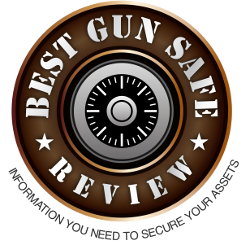United States
According to a 2011 study by the U.S. Department of Justice (DOJ) and the Bureau of Alcohol, Tobacco, Firearms, and Explosives (ATF), the number of firearms owned by private civilians in the U.S. was 310 million, including 114 million handguns, 110 million rifles, and 86 million shotguns. That’s roughly one gun for every person in the country.
No other country in the world has such a zeal for legal gun ownership. This is not terribly surprising, as the Second Amendment to the U.S. Constitution states that, “A well regulated militia being necessary to the security of a free state, the right of the people to keep and bear arms shall not be infringed.”
While this right to bear arms is constrained by federal and state law, many American citizens hold that right near and dear to their hearts. Thus, one gun for every person.
As the National Rifle Association declares on their website: “While widely recognized today as a major political force and as America’s foremost defender of Second Amendment rights, the NRA has, since its inception, been the premier firearms education organization in the world. But our successes would not be possible without the tireless efforts and countless hours of service our nearly four million members have given to champion Second Amendment rights and support NRA programs.”
At the same time, the Centers for Disease Control and Prevention reported more than 32,000 deaths resulting from a firearm in 2011, including nearly 16,000 homicides, so the need for regulation is understandable from a public safety standpoint—despite the “not to be infringed” wording of the constitutional framers.
In the U.S., possession of a handgun is allowed without a license in some jurisdictions. This is true even for semi-automatic assault weapons in some states. Fully automatic weapons require a license in all jurisdictions.
The federal law on firearms stipulates a minimum age of 18 years to purchase shotguns and rifles, and 21 years to purchase all other firearms. Those not prohibited must submit to background checks of their criminal, mental, and health records.
Prohibited persons have their right to bear arms revoked in many cases. These include convicted felons, those ruled in court to be mentally defective, illegal aliens, drug users in treatment programs, those dishonorably discharged from the Armed Forces, former citizens who have renounced their American citizenship, some of those who have been convicted of domestic violence, and anyone subject to a court order restraining them from harassing, stalking, or threatening an intimate partner.
Civilian gun owners are not required to register their purchase with authorities in many cases, although gun dealers are required to keep a record of all sales. Sales at gun shows are typically subject to more lax requirements.
According to the ATF, as of 2011, there were 123,587 gun dealers registered in the U.S., down from 284,117 registered gun dealers just 20 years prior.
Federal laws governing firearms are the National Firearms Act of 1934, the Gun Control Act (1968), and the Brady Handgun Violence Prevention Act (1993). The last act is named for Jim Brady, who served as the White House Press Secretary under Ronald Reagan. In 1981, Brady was wounded and permanently disabled during an assassination attempt on the president. Brady then became a staunch supporter of gun control.
But local laws can vary widely, and this is crucial to remember. Interstate travel with your firearm can be illegal, in many cases, as soon as you cross state lines. For example, the mandatory penalty for possession of an unlicensed firearm in the state of New York is two years in prison. It doesn’t matter if you have a license in New Jersey. Always check applicable state laws.
United Kingdom
Unlike the permissive firearms regulations found in the U.S., the United Kingdom takes a restrictive stance on gun ownership.
It may be helpful to define the political composition of the U.K. for some readers. The full name of the country is the United Kingdom of Great Britain and Northern Ireland. Great Britain consists primarily of England, Scotland, and Wales, while Northern Ireland is made up of six northern countries on the island of Ireland. The Republic of Ireland is a separate nation, but also features restrictive gun laws.
There is no right to own a gun in the U.K., and the maximum sentence for possession of an illegal firearm runs from five to 10 years in prison. Both semi-automatic and automatic weapons are banned by law, and private ownership of a handgun is also illegal.
A license is required for each gun owner, and they must undergo a background check, which considers any possible history of criminal, mental or addiction behaviors. Third-party character references are also required. Nevertheless, there is no compulsory training required to get a firearm owner’s license.
Gun owners must apply to renew their license every five years, and this necessitates an entirely new qualification process.
Thanks for visiting www.bestgunsafereview.com, if you liked this article please use our social buttons to give us the thumbs up.

Comments are closed.